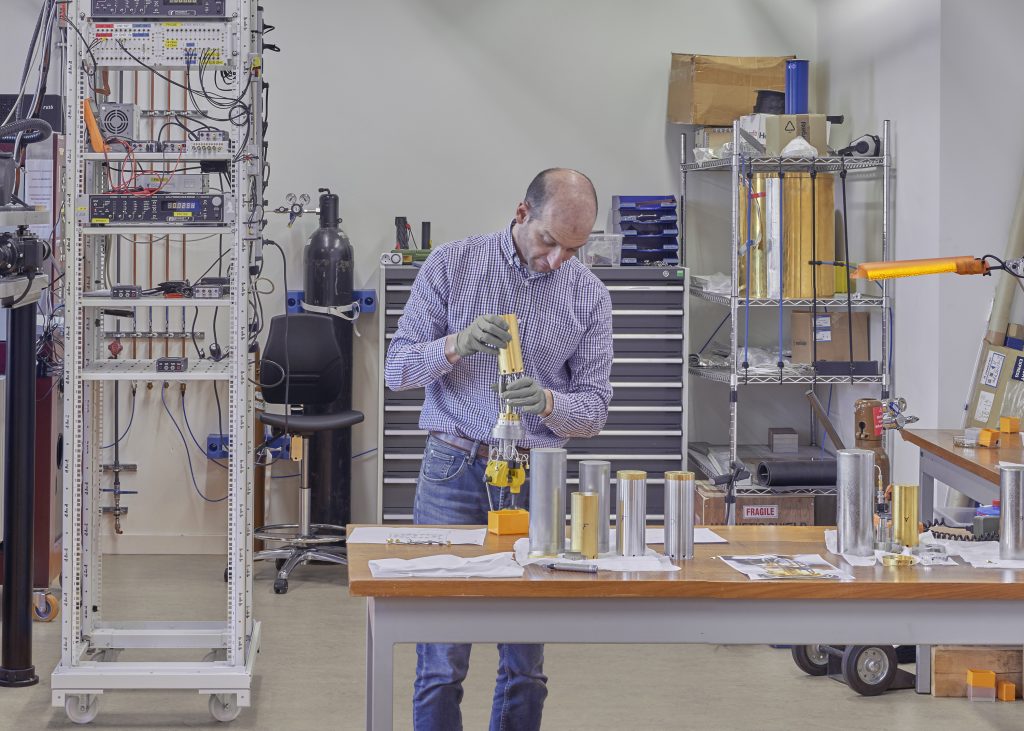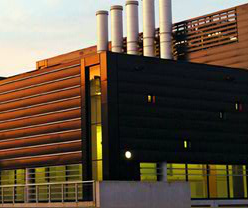Facilities
We are housed in QC-lab 1 of QuTech. Our group currently has six dilution refrigerators, which we nickname after Italian cars and motorcycles: Ferrari, Ducati, Maserati, Lamborghini, Aprilia, and Pagani. We also have a 3He system we nickname Vespa.

Fabrication facilities
We have all the equipment necessary to fabricate devices from start to finish. The Van Leeuwenhoek Lab, a 3500 m2 state-of-the-art cleanroom facility established in 2009, features high-resolution electron-beam and optical lithography, mask fabrication, sputtering- and evaporation-based deposition, dry etching, wet processing, high-resolution optical and electron microscopy, and dicing, all in a class 10,000 or better environment staffed by professional techs. In additon, QuTech has its own dedicated equipment, including an Al e-beam evaporator for making Josephson junctions, a wirebonder and multiple probe stations.

Funding
We gratefully acknowledge past and present funding.
Present funding includes:
National Growth Funds KAT-1 Phase 1 and 2, including project HectoQubit/2
European Union Flagship on Quantum Technology, project OpenSuperQPlus
Intel corporation
Netherlands Organization for Scientific Research (NWO), NWA-ORC program, project Quantum Inspire—the Dutch Quantum Computer in the Cloud
Quantum Delta NL, SME project DiagnostiQ
Dutch Ministry of Economic Affairs, TKI (Allowance for Top Consortia for Knowledge and Innovation) projects
Short description of our TKI projects
TKI with Qblox:
Integrating the next-generation paradigm for quantum computer control

This project aims at advancing the development of scalable quantum computing solutions by validating and further developing Quantify, a high-level data-acquisition open-source software platform designed for control of multi-qubit quantum systems. Quantify is a joint development of Qblox and Orange Quantum System, inspired by our lab’s PycQED platform.
Project goals:
• To further develop and ultimately demonstrate the viability of Quantify as a next-generation software platform for control of multi-qubit systems using existing control electronics (i.e., backwards compatibility).
• To demonstrate the use of Quantify and the next-generation Qblox Cluster control hardware to successfully control a quantum processor with 17 superconducting qubits, thereby passing a feasibility test for scaling to higher qubit counts.
This project is a strategic partnership between our lab and Qblox, a QuTech spin-off specializing in scalable quantum control electronics. We hope to strengthen the Dutch quantum ecosystem through this collaboration, driving forward both academic research and industrial applications in quantum computing.
TKI with Zurich Instruments:
An electronics validation platform for QuTech demonstrator and experimental quantum science

The project develops a stand-alone validation platform, or testbed, to enable thorough regression testing of software and firmware updates for Zurich Instruments devices, without causing downtime for QuTech’s superconducting quantum processor demonstrator available via the Quantum Inspire platform or research setups in our lab focusing on quantum error correction.
Project goal:
• To develop a dedicated platform allowing thorough regression tests of software and firmware upgrades for existing instruments and the bring-up of new instruments for commercialization, without requiring down-time for the online demonstrator or scientific setups in the lab.
This collaboration between ZI and our lab builds on our strong relationship which started with the IARPA LogiQ program in 2015. During this earlier project, we developed and tested several instruments prior to their commercialization by ZI (HDAWG-8 and UHFQA). This TKI projects fits within the objectives of the National Agenda Quantum Technologies by contributing to the further development of demonstrators. Through the dedicated testbed, this project aims to reduce the downtime associated with validation processes, improving system availability for end users worldwide.
These TKI projects are co-financed by Holland High Tech with a PPP allowance for research and development in the top sector HTSM; TKI HTSM/20.0290.
Previous funding includes:
IARPA, LogiQ program, project QuSurf
Microsoft Research
ERC Synergy grant QC-lab
EU FP7 Program, project ScaleQIT
EU FP7 Program, project SOLID
NWO Vidi grant
FOM projectruimte grant
Marie Curie, Career Integration grant
Nanofront, internal PhD call, project QuEEN